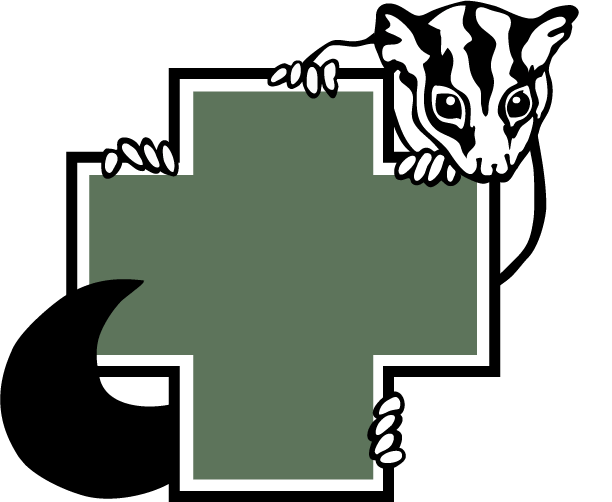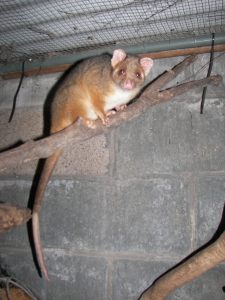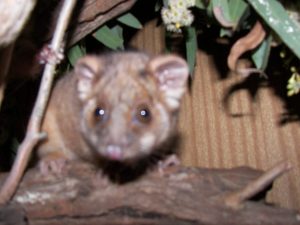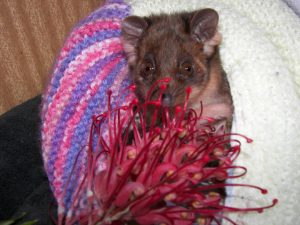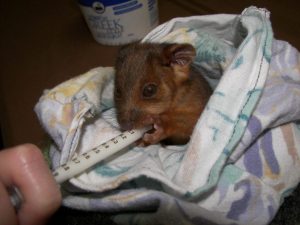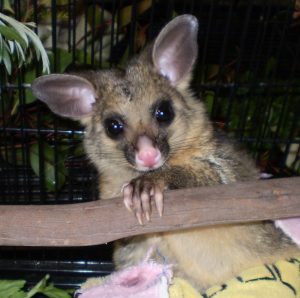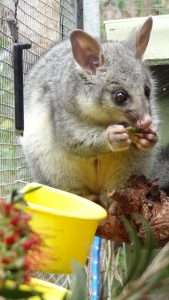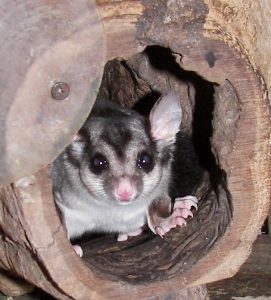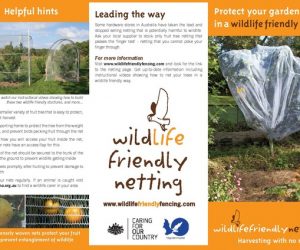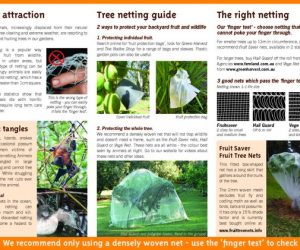Possums and Gliders
Possums and gliders that are found on the ground and/or during the day must always be reported- they are nocturnal animals, and this is grossly abnormal behaviour that is often due to sickness or rat bait poisoning.
Common Ringtail (Pseudocheirus peregrinus) and Common Brushtail (Trichosurus vulpecula) possums are two of the most common species we rescue and rehabilitate. These species thrive in cities and a wide range of natural and human-modified environments as determined, opportunistic foragers.
Throughout the Hunter Valley, we are lucky enough to encounter several species of native glider; the most common of which are the feathertail glider (Acrobates pygmaeus), sugar glider (Petaurus breviceps) and squirrel glider (Petaurus norfolcensis).
Common reasons a glider may require rescue are:
- Cat/dog attack
- Entanglement (e.g. wire)
- Entrapment/unsuitable habitat (e.g. stuck inside)
Gliders that come into contact of any kind with cats MUST come into our care to be treated with antibiotics to stave off infection.
Never attempt to remove a glider (or any animal) from barbed wire yourself. This often worsens the situation for the animal and should be left to specifically trained members of our rescue crew.
If you find an injured or orphaned possum or glider:
- Don’t feed it! Possums have specialised diets. Fruit, especially, can make species such as the ringtail possum very sick.
- Place the animal in a secure environment (e.g. a pillowcase with the top tied securely or a secured box)
- Cover with a towel to reduce visual stimuli.
- Place the animal somewhere warm, quiet and dark to reduce the stress. This means no nursing or cuddling, no photos, no interactions with the pet dog, etc.
- A water bottle filled with warm (never boiling) water wrapped in cloth may be placed next to a baby possum if it is cold or if it is unfurred (also referred to as a “pinkie”).
Possums in a Roof or Wall Cavity
We often receive calls regarding possums who have taken up residence in peoples roof cavities, sheds and other strange places. We are unable to relocate these possums, as the vast majority of possums die after being translocated from their territory. Instead, consider putting a possum box up for them.
Members of Hunter Wildlife Rescue cannot remove possums from inside roofs, wall cavities, under houses etc.
Fee-for-service pest control:
- Amalgamated Pest Control – 4943 9999
- Possum Plus – (Greg) – 1300 164 831, 0432433784
- Aristocrat Pest Control (Peter) – 0408862859
You will need to get the possum’s entry point fixed so the possum cannot re-enter. By law, the possum will be released in the same area.
It is the Australian marsupial most often seen by city dwellers, as it is one of few that thrive in cities and a wide range of natural and human-modified environments. Around human habitations, common brushtails are inventive and determined foragers with a liking for fruit trees, vegetable gardens, and kitchen raids.
